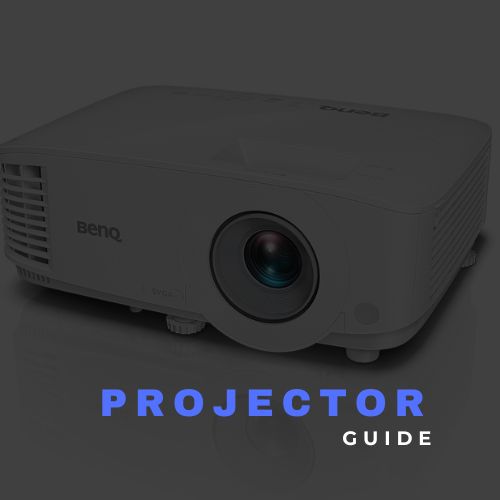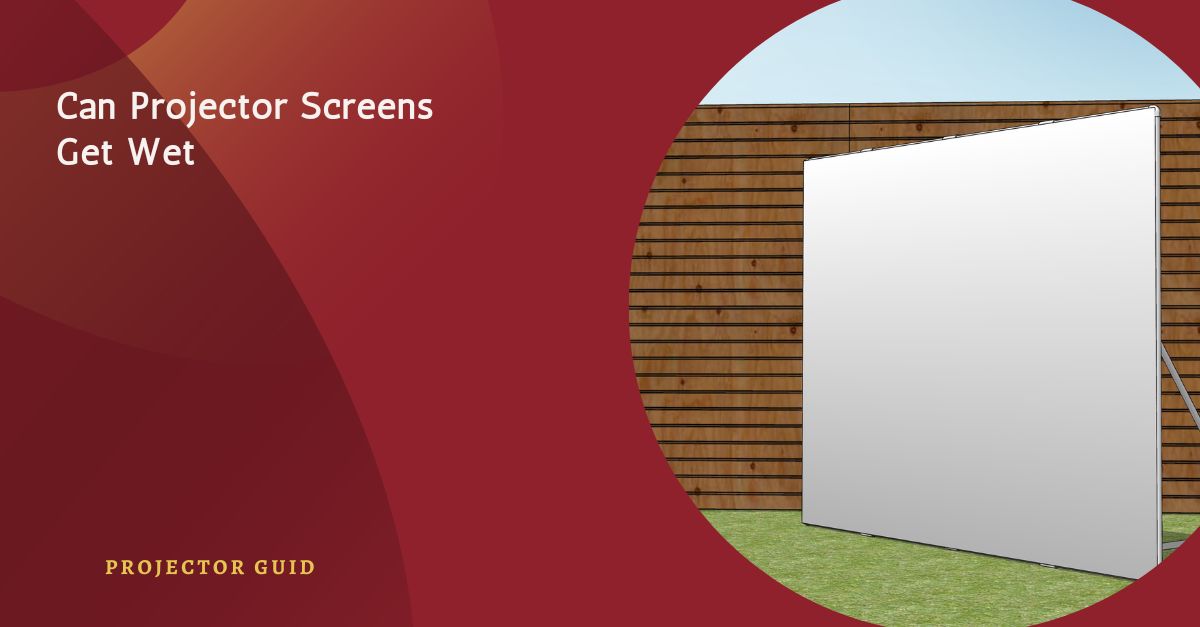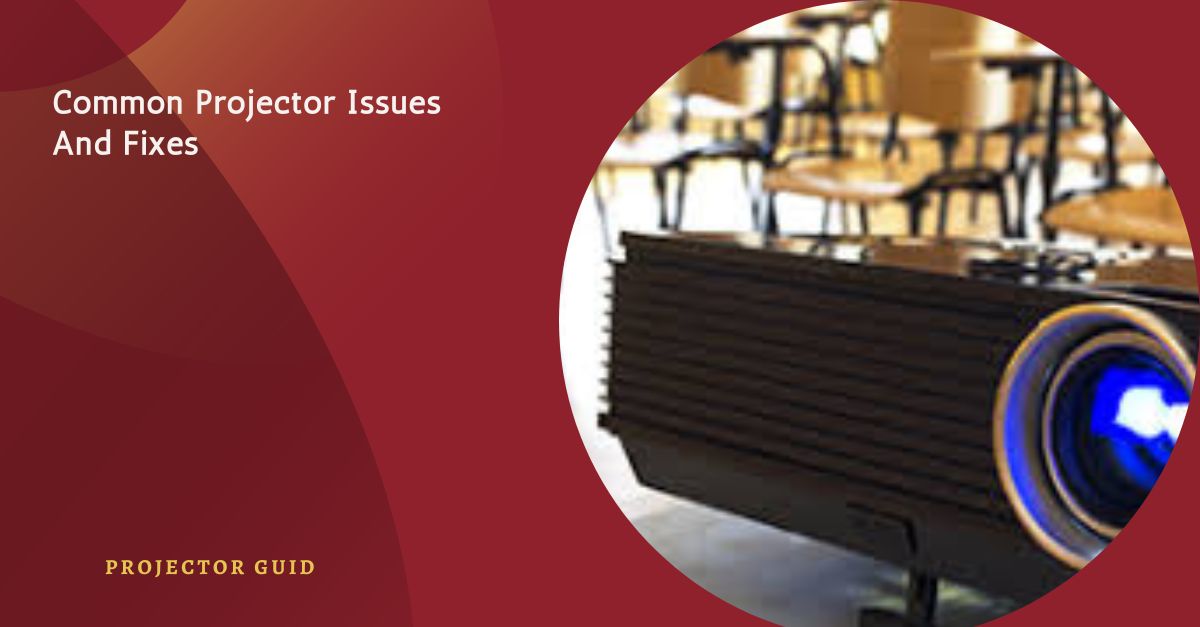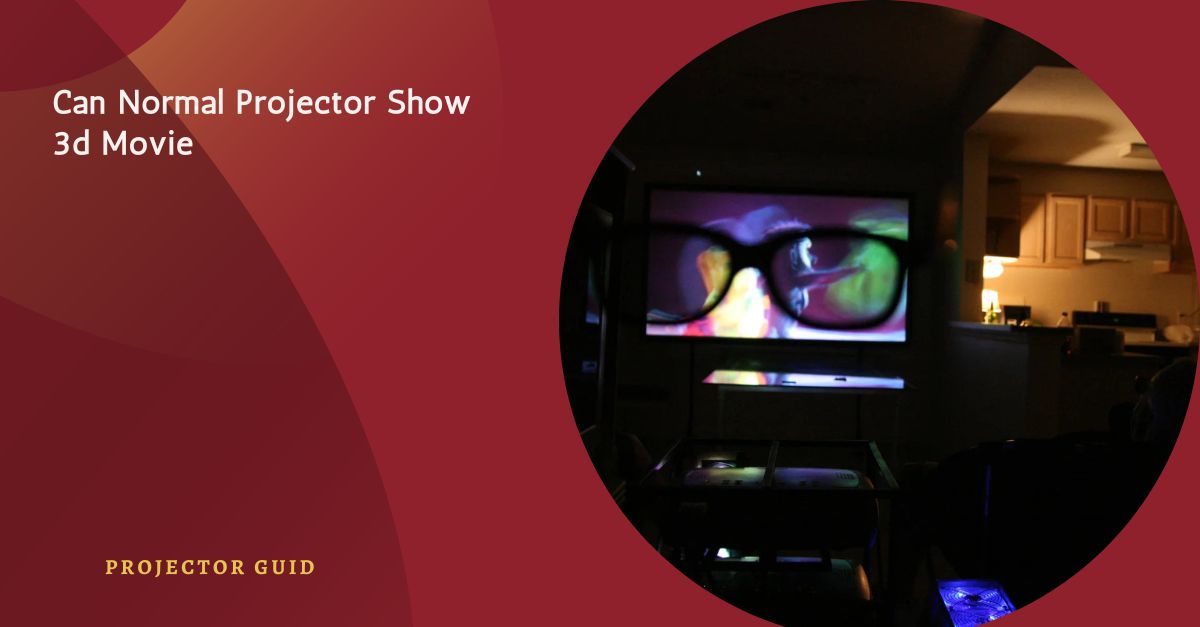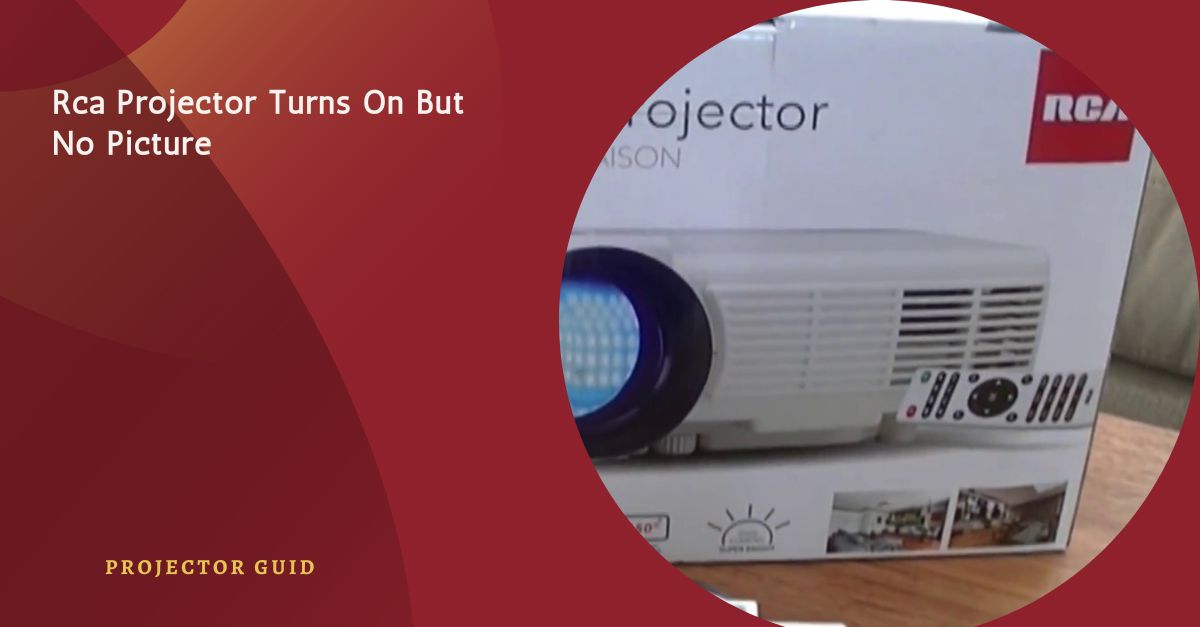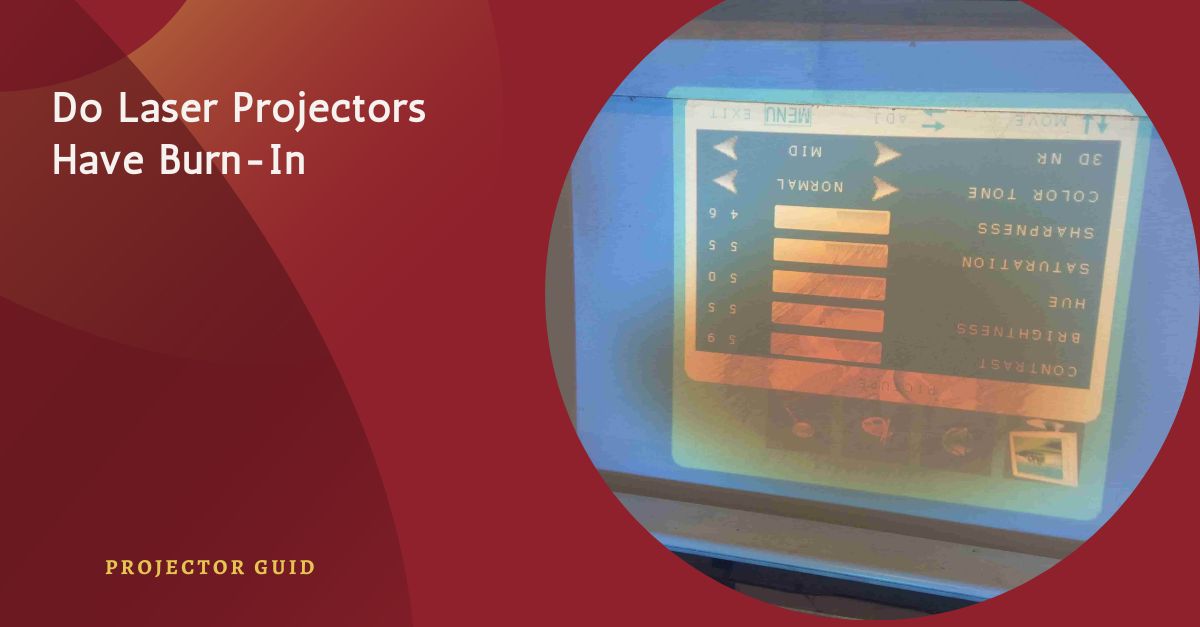One night, I left my fabric projector screen outside, not expecting rain. The next morning, it was wet, wrinkled, and started to grow mold. Even after drying it, the screen wasn’t the same. Now, I always bring it inside to keep it from getting damaged by water.
Yes, projector screens can get damaged by water, especially those made from traditional materials like Matte White or High Contrast Gray. Can projector screens get wet These screens aren’t made to handle moisture and can warp, develop mold, or stain if exposed to water. To protect your screen, keep it dry and promptly dry it if it gets wet to avoid lasting damage.
We’ll look at whether projector screens can get damaged by water and how it affects their performance. Can projector screens get wet, different screens react to moisture and get simple tips for keeping your screen safe and dry. Find out how to avoid water damage and keep your projector screen in great shape.
Can Projector Screens Get Wet?
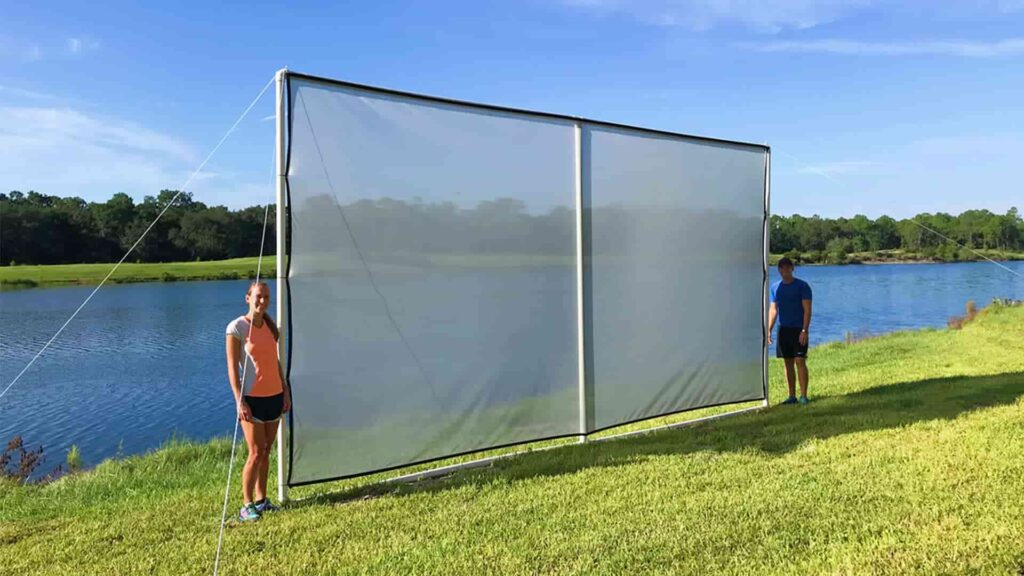
Yes, they can. If water gets on a projector screen, it might warp, stain, or grow mold, especially if the screen is made from materials like Matte White or High Contrast Gray.
To keep your screen in good shape, make sure to keep it dry and protect it from moisture. If it does get wet, dry it quickly to avoid damage and keep it looking and working well.
Read: Can A Projector Play 3d – Stay Updated With 3d Tech Innovations!
What’s the best way to clean a projector screen?
To clean your projector screen properly, start by dusting it with a soft, dry cloth or a microfiber duster to remove any loose particles. Can projector screens get wet Avoid using rough materials or abrasive cleaners, as they can scratch or damage the screen surface.
For more stubborn stains, use a damp cloth with a mild, non-abrasive cleaner designed for electronics. Gently wipe the affected area in a circular motion, and then dry the screen thoroughly with a clean, dry cloth. Always follow the manufacturer’s cleaning instructions to ensure you don’t inadvertently harm the screen.
Tips for Keeping Your Projector Screen Clean
- Dust the Screen: Use a soft, dry cloth or microfiber duster to remove loose dust and particles.
- Avoid Abrasives: Don’t use rough materials or abrasive cleaners to prevent scratching the screen.
- Use Mild Cleaners: For stains, apply a damp cloth with a mild, non-abrasive cleaner made for electronics.
- Wipe Gently: Clean the screen in a circular motion to avoid streaks and damage.
- Dry Thoroughly: After cleaning, use a clean, dry cloth to remove any moisture and prevent water spots.
- Follow Manufacturer’s Instructions: Always check the manufacturer’s cleaning recommendations to ensure you’re using the right methods.
- Don’t Use Masking Tape:Using masking tape on your projector screen can leave behind sticky residue or damage the surface. Instead, use screen-friendly cleaning tools to avoid any harm.
A Complete Guide To Projector Screen Materials:
- Room Lighting: Consider the lighting in your room when choosing a projector screen, as it affects image visibility and quality. Darker rooms typically benefit from screens designed for low light conditions.
- Viewing Angle: The screen’s viewing angle determines how well the image is visible from different positions. Choose a screen with a wide viewing angle if multiple viewers will be watching from various spots.
- Projector Type: Match the screen to your projector type (LCD, DLP, etc.) to ensure optimal image quality. Different projectors may require different screen materials for the best performance.
- Resolution Needs: The screen should support the resolution of your projector to display clear and sharp images. Higher resolution projectors need screens that can handle detailed visuals.
- Color Accuracy: For true-to-life colors, choose a screen with good color accuracy. This is essential for presentations and media where precise color reproduction is important.
- Screen Size: Select a screen size that fits your room and viewing distance. A larger screen provides a more immersive experience, but it should be proportional to your space.
- Portability: If you need to move the screen frequently, consider a portable option. Portable screens are convenient for events and presentations in different locations.
- Budget Constraints: Balance your needs with your budget when choosing a screen. There are options available at various price points, so find one that meets your requirements without overspending.
- Acoustic Transparency: For home theaters, acoustic transparency allows sound to pass through the screen without distortion. This is important if you want to place speakers behind the screen.
- Durability: Look for a screen made from durable materials that can withstand wear and tear. A durable screen will last longer and maintain its quality over time.
How Can You Protect Your Projector Screen From Water Damage?
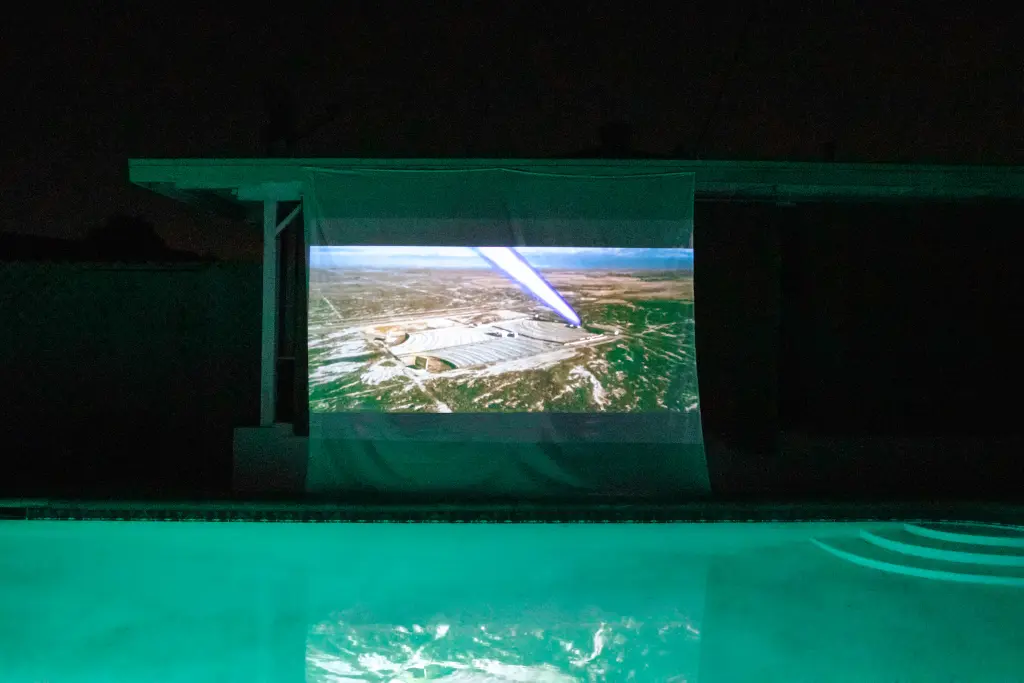
To protect your projector screen from water damage, use a cover when it’s not in use. A water-resistant cover can keep rain and spills off the screen. Can projector screens get wet For outdoor setups, get a cover that fits well to keep moisture out.
If your screen does get wet, dry it quickly with a clean cloth and let it air dry completely before using it again. Keeping the screen covered and storing it indoors during bad weather will help it last longer.
What Happens If A Projector Screen Gets Wet?
If a projector screen gets wet, it can be damaged in different ways depending on the material. Fabric or polyester screens can absorb water, leading to wrinkles, mold, or stains. This can make the screen look bad and affect how well it displays images.
Vinyl or fiberglass screens might warp or get stained if exposed to water. While these materials handle moisture better, they can still be damaged over time. Can projector screens get wet It’s important to dry the screen as soon as possible to avoid long-term issues and keep it working well.
Are Outdoor Projector Screens Waterproof?
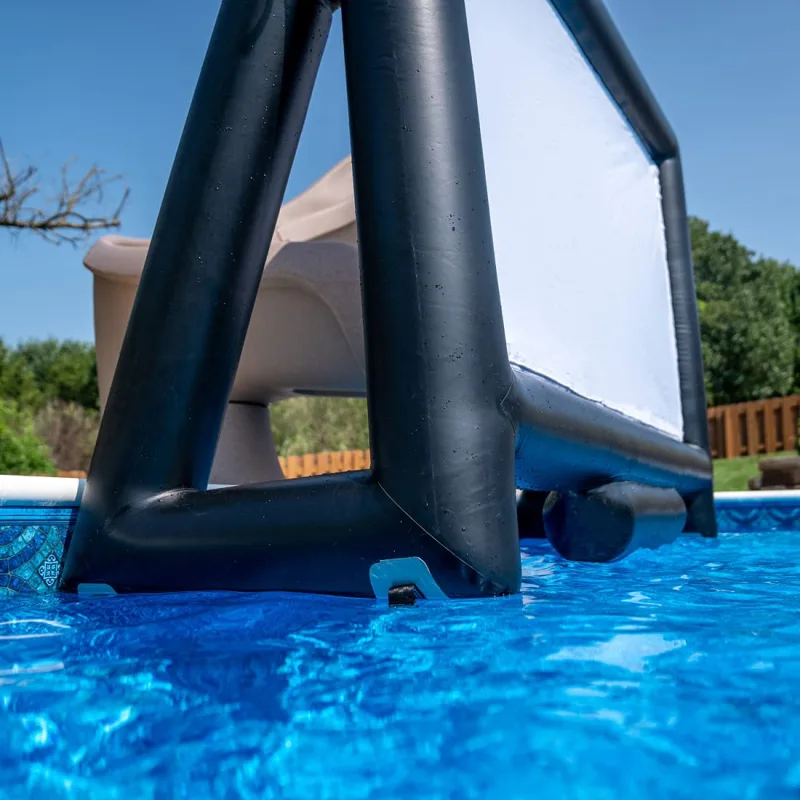
Outdoor projector screens are made to handle some weather, but they’re not fully waterproof. Can projector screens get wet They can resist light rain or splashes, but heavy rain or standing water can still damage them.
To protect your outdoor screen, use a cover when it’s not in use and bring it indoors during bad weather. Can projector screens get wet This helps keep it in good shape and prevents damage from moisture.
Read: can a projector work in daylight – best image quality during the day!
How Do I Protect My Projector Screen From Rain?
To protect your projector screen from rain, use a waterproof cover when it’s not in use. Can projector screens get wet Make sure the cover fits tightly to keep the rain out and keep the screen dry.
Also, store the screen indoors or in a dry place if you know it’s going to rain. If the screen gets wet, quickly dry it with a clean cloth and let it air dry completely before using it again. Can projector screens get wet This will help keep your screen in good shape and avoid damage.
How Can Water Damage Affect The Image Quality On A Projector Screen?
Water damage can hurt the image quality on your projector screen. When the screen gets wet, it can develop wrinkles, stains, or mold, which can make the image look blurry or uneven.
Moisture can also change how the screen reflects light, causing colors to look dull or off. Can projector screens get wet To keep the image clear and vibrant, it’s important to keep the screen dry and in good shape.
What Are The Best Projector Screens For Outdoor Use?
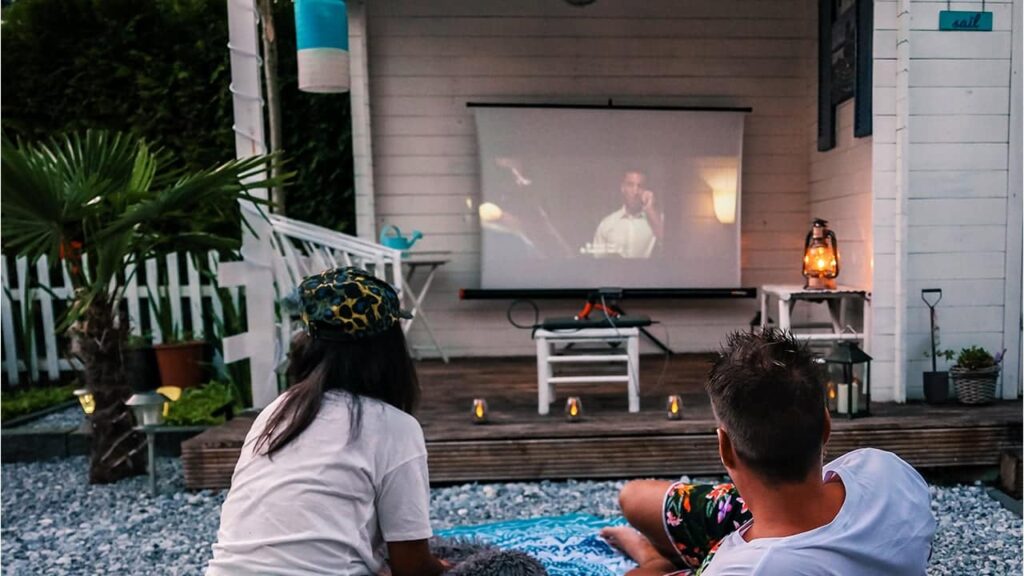
When picking a projector screen for outdoor use, choose one that can handle different weather conditions and still show a great picture. Look for screens made from strong, weather-resistant materials that can stand up to rain, wind, and sunlight. Can projector screens get wet? A sturdy frame and easy setup are also important to keep the screen stable during outdoor events.
Some of the best outdoor projector screens include the Elite Screens Yard Master 2, which is durable and easy to set up, and the Silver Ticket Products STR-169120, which provides a clear picture and strong frame. The VIVO 100-inch Outdoor Projector Screen and JWSIT 120-inch Portable Projector Screen are also good choices because they are portable and built to handle outdoor conditions.
Top Outdoor Projector Screens:
- Elite Screens Yard Master 2
- Silver Ticket Products STR-169120
- VIVO 100 inch Outdoor Projector Screen
- JWSIT 120 Inch Portable Projector Screen
- KODAK 120″ Outdoor Movie Screen
How Can I Dry A Wet Projector Screen?
To dry a wet projector screen, start by gently wiping it with a clean, dry cloth to soak up as much water as you can. Be careful not to use rough materials or scrub too hard, as this can harm the screen.
Once you’ve wiped off the excess moisture, let the screen air dry in a well-ventilated area. Try to keep it in a warm, dry place to speed up the drying process. Can projector screens get wet Make sure the screen is completely dry before you use it again to prevent damage or mold from forming.
Are There Any Fully Waterproof Projector Screens Available?
While some outdoor projector screens are water-resistant, finding one that is completely waterproof can be difficult. Many screens made from materials like vinyl can handle light rain and moisture but might not stand up to heavy rain or long exposure.
To keep your screen safe, use a waterproof cover when it’s not in use and check the product details for its water resistance. Can projector screens get wet Taking good care of your screen will help it last longer and stay in good shape.
- Types of Screens: Some outdoor projector screens are designed to be water-resistant, but few are completely waterproof. These screens can handle light rain and moisture but may not withstand heavy downpours or prolonged exposure to water.
- Material Options: Look for screens made from high-quality vinyl or coated materials that offer better water resistance. These materials are designed to repel water and protect against moisture damage.
- Protective Covers: Even if a screen is water-resistant, using a waterproof cover when not in use provides extra protection against heavy rain and long-term exposure.
- Manufacturer Details: Check with manufacturers or product descriptions to find screens specifically labeled as water-resistant or designed for outdoor use. They often provide guidelines on how to handle various weather conditions.
- Maintenance Tips: Regularly inspect and clean the screen to ensure it remains in good condition and can handle moisture effectively.
Can Projector Screen Coatings Protect Against Moisture?
Projector screen coatings can help protect against moisture to some extent. Many screens have coatings that make them water-resistant, so they can handle light splashes or a bit of humidity without major problems. Can projector screens get wet These coatings help keep the moisture from soaking into the screen and causing damage.
However, these coatings may not be enough for heavy rain or constant wet conditions. To keep your screen in good shape, use a protective cover when it’s not in use and store it properly. Can projector screens get wet Regularly check the screen for any signs of damage to help it last longer.
Is It Safe To Leave A Projector Screen Outside Overnight?
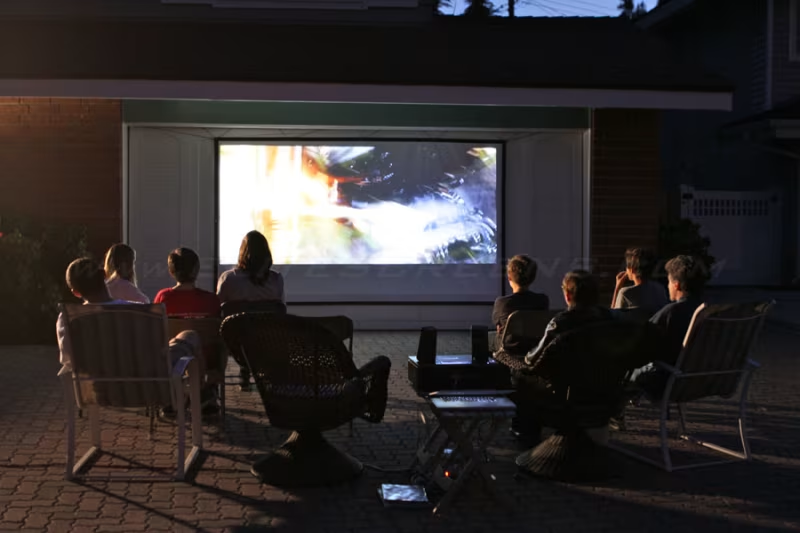
Leaving a projector screen outside overnight is not very safe. Even if the screen is made to handle some weather, it can still be damaged by dew, rain, or extreme temperatures. Over time, this can cause the screen to warp, stain, or grow mold.
To keep your screen in good shape, it’s better to bring it inside or use a protective cover when you’re not using it. Can projector screens get wet This helps protect the screen from moisture and weather that can damage it and make it less effective.
Should I Store My Projector Screen Indoors During Humid Weather?
Yes, it’s best to store your projector screen indoors during humid weather. High humidity can cause problems like mold, wrinkles, or stains on the screen. Can projector screens get wet Even if the screen is designed to resist water, too much moisture can still damage it.
Keeping the screen indoors helps protect it from the effects of humidity and keeps it in good condition. If you can’t bring it inside, use a protective cover to keep moisture away. Regularly checking the screen for any issues will also help it stay in good shape.
FAQs:
Q1. Can Projector Screens Be Damaged By Rain?
Yes, projector screens can be damaged by rain, especially if they are not designed to withstand moisture. Rain can cause warping, staining, or mold growth.
Q2. Are There Any Projector Screens That Are Completely Waterproof?
Fully waterproof projector screens are rare. Most outdoor screens are water-resistant but not entirely waterproof.
Q3. Can Outdoor Projector Screens Handle Heavy Rain?
Outdoor projector screens can handle light rain but may not be suited for heavy downpours. Prolonged exposure to heavy rain can lead to damage.
Q4. How Can Moisture Affect The Performance Of A Projector Screen?
Moisture can lead to wrinkles, stains, and mold on the screen. This can affect the clarity and color accuracy of the projection.
Q4. What Should I Do If My Projector Screen Accidentally Gets Wet?
Quickly wipe off excess water with a clean cloth and let the screen air dry completely in a well-ventilated area.
Q5 How Can I Protect My Projector Screen From Water Damage?
Use a waterproof cover when not in use and store the screen indoors or in a dry place during bad weather.
Q6. Do Projector Screens With Special Coatings Resist Water Better?
Screens with special coatings can offer better water resistance, but they are not immune to damage from heavy or prolonged exposure.
Q7. What Are The Best Materials For A Projector Screen To Resist Water?
Materials like high-quality vinyl or coated fabrics are better at resisting water and can handle light moisture more effectively.
Q8. Is It Safe To Leave A Projector Screen Outside During A Storm?
It’s not safe to leave a projector screen outside during a storm. Strong winds and heavy rain can cause significant damage.
Q9. Can Using A Projector Screen Cover Help Prevent Water Damage?
Yes, using a projector screen cover can help prevent water damage by keeping moisture and other elements away from the screen.
Conclusion:
In Conclusion:, projector screens can get damaged if they get wet, as they are not completely waterproof. To keep your screen in good condition, protect it from rain and moisture by using a waterproof cover and storing it indoors during bad weather.
If your screen does get wet, dry it off quickly. Taking these simple steps will help ensure your projector screen stays in great shape and provides a clear, bright image.
Read More:
